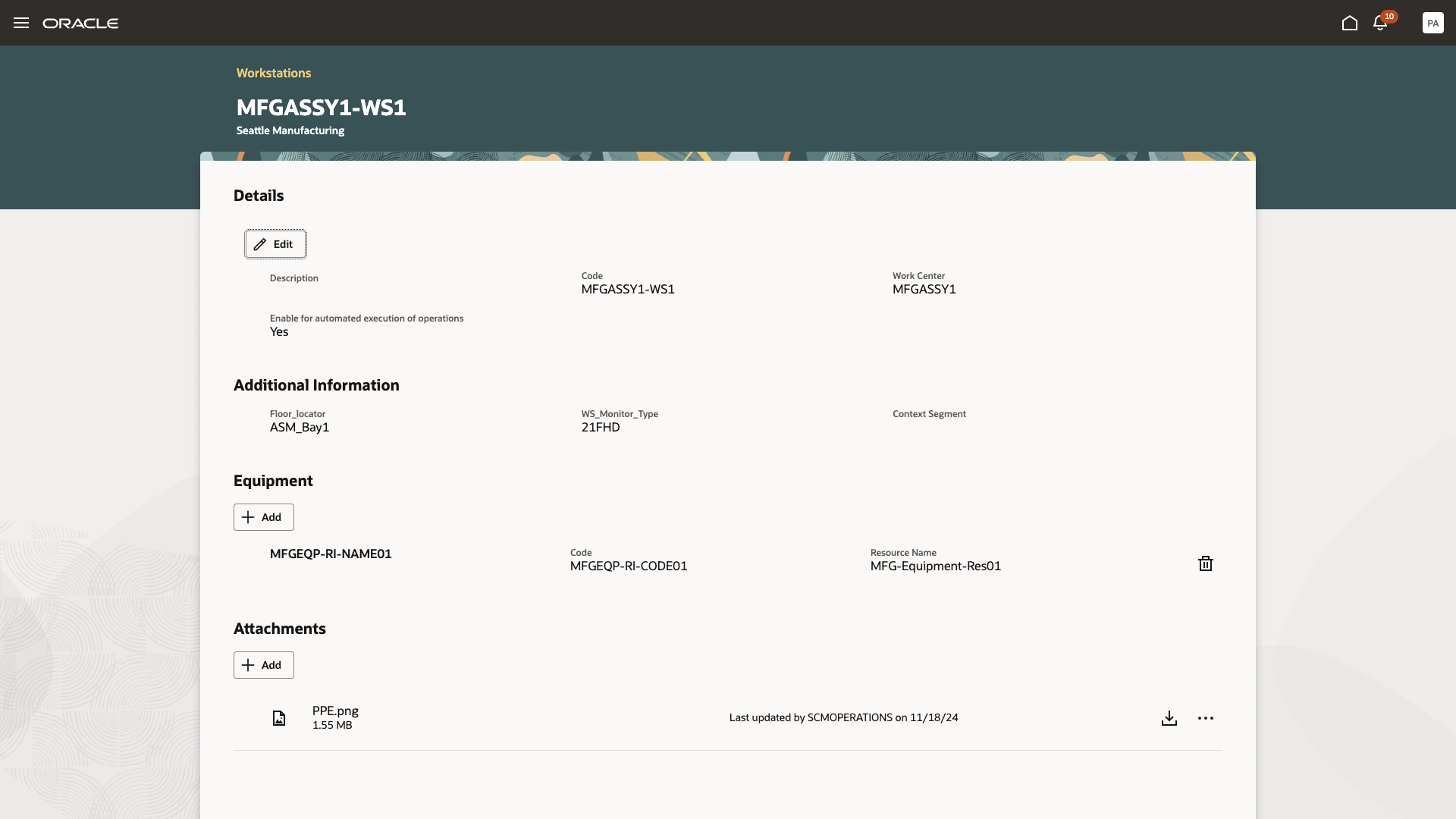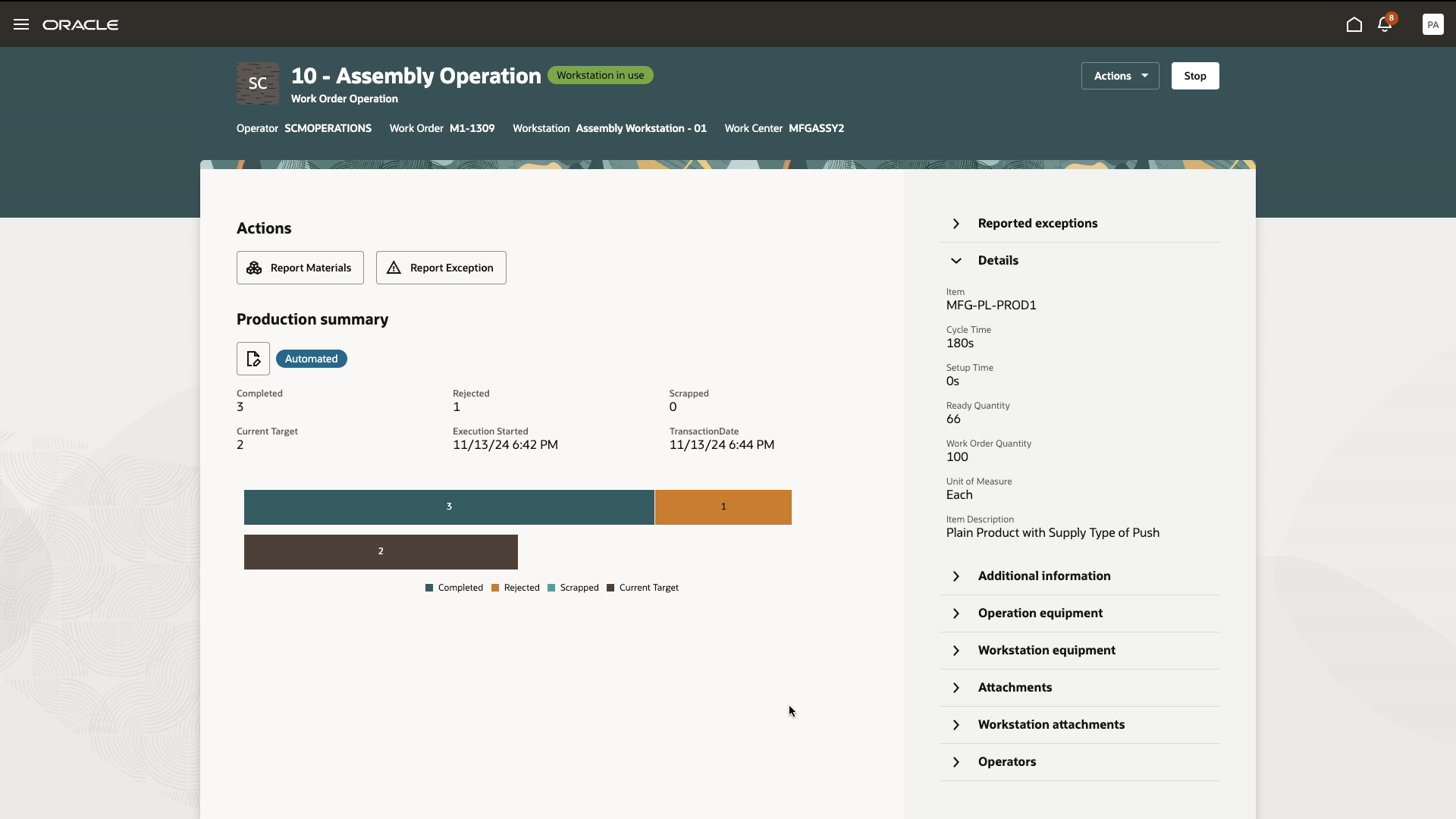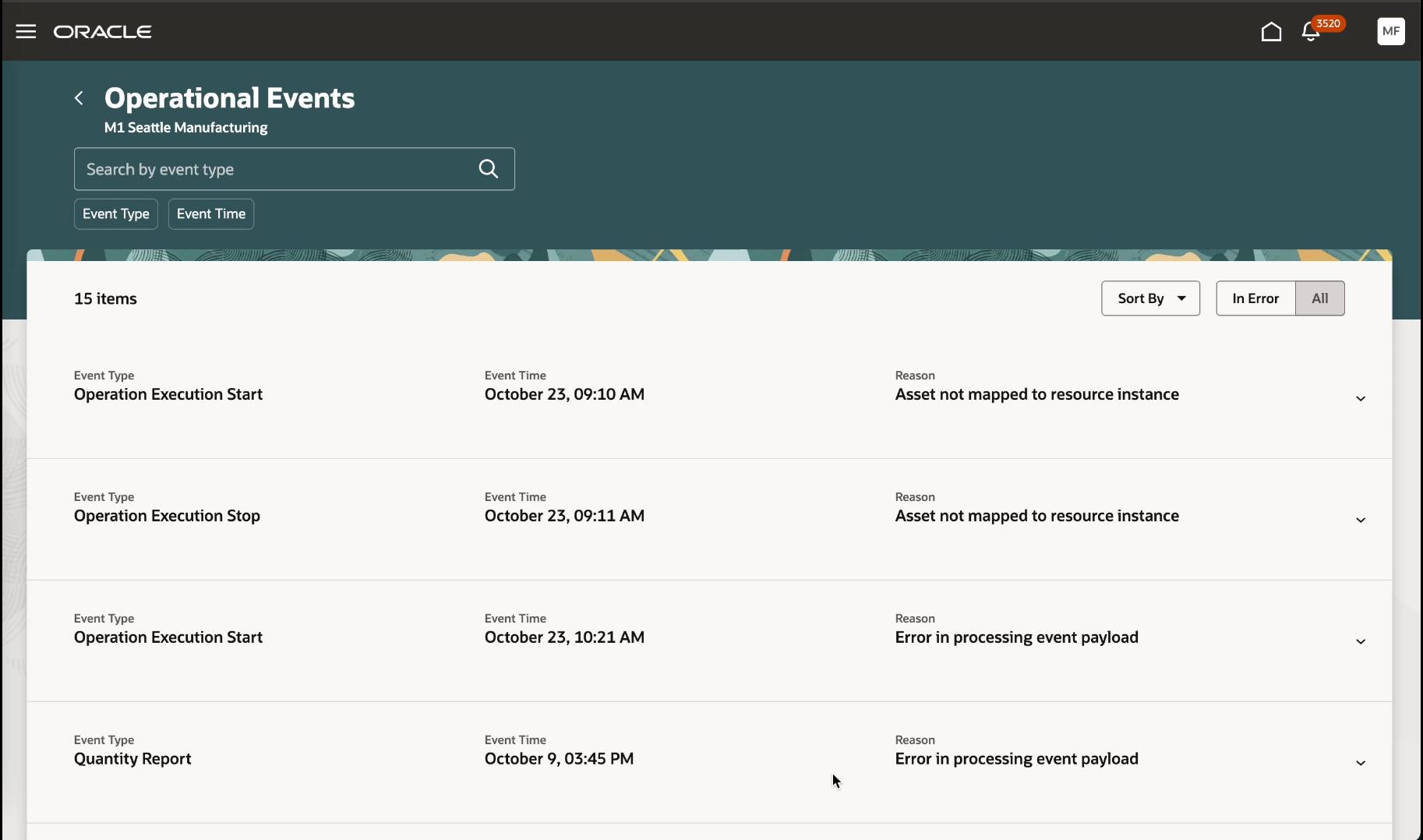Complete Work Order Operations Automatically Using Equipment Signals at Workstations
Manufacturing plants are sometimes equipped with connected equipment, which are capable of producing machine events, such as reporting the quantities produced during execution. For workstations that use connected equipment, you can now automatically record completed and rejected quantities when executing production, leveraging the machine signals through IoT communications. You can optionally report quantities manually during work order operation execution.
Machine events also let you automatically start the work order operation at a workstation when you check in to the workstation.

Enable Workstation to Support Automated Execution of Operations

View Connected Equipment's Execution Progress

View Operational Events History
Manufacturers can increase operator productivity by allowing operators to focus on actual production tasks. Real time status and progress updates on production performance are automatically provided.
Here's the demo of these capabilities:
Steps to Enable
To enable this feature you need to log a Service Request (SR).
- Select Product Module - Oracle Fusion Manufacturing Cloud Service.
- Select Category - Work Execution.
- Select Subcategory - Manage Work Orders.
- Select Component: Installation Issue (INSTALL).
- Copy and paste this text into description area of the SR: Enable the SCM Core Service-Smart Operations.
This feature requires the SCM Core Service-Smart Operations service to be provisioned on your instance. Please note that this service can be enabled only on pods that are available on Oracle Public Cloud regions. Once this service is enabled, you can access the user guide and implementation guide to learn more about this feature and how to set it up.
Tips And Considerations
- If a signal received from an equipment cannot be processed, the reason for the failure to process can be viewed using the "Operational Events" task in the Work Execution work area.
- Equipment instances capable of communicating through industrial communication protocols can send the following signals to Fusion Manufacturing Cloud:
- Operation execution start.
- Operation execution stop.
- Asset(equipment resource instance) status change, to down, in-use, and idle.
- Quantity reporting from Ready to Complete or Reject.
- Asset (equipment resource instance) fault with Fault Code and Fault Type.
- Enable a workstation for automated execution of work order operations by setting the "Enable for automated execution of operations" flag for the workstation.
- To enable equipment resource instances for connected execution, they need to be associated with an asset configured in Oracle Fusion Maintenance Cloud. The asset's location organization should be the same as the equipment resource instance's manufacturing organization.
- Operation execution start and stop events and quantity report events are currently supported for discrete work orders only.
- Equipment instance signals received through industrial communication protocols need to be converted to a REST payload that Fusion Manufacturing Cloud can ingest and take actions on. The accepted payload specifications are documented here: REST API for Oracle Fusion Cloud SCM.
Key Resources
- Watch the feature demo for Complete Work Order Operations Automatically Using Equipment Signals at Workstations.
- Watch the feature demo for Execute Production at a Workstation and Automate Resource Transactions.
- Oracle Fusion Cloud SCM: Refer to the Using Manufacturing guide, available on the Oracle Help Center.
- Oracle Fusion Cloud SCM: Refer to the Implementing Manufacturing and Supply Chain Materials Management guide, available on the Oracle Help Center.
Access Requirements
Users who are assigned a configured job role that contains the following privileges and duty roles can use this feature:
- View Operational Events (SMO_VIEW_EVENT_LOGS_PRIV)
- View Operational Events (ORA_DR_SMO_VIEW_OPERATIONAL_EVENTS_MFG_DUTY)
- Manage Operational Rules and Events (ORA_DR_SMO_MANAGE_OPERATIONAL_RULES_AND_EVENTS_MFG_DUTY)
The preceding duty role is introduced in this update.
Guided Journeys : Role Codes
- Use REST Service - Guided Journeys Read Only (Role Code ORA_PER_REST_SERVICE_ACCESS_GUIDED_JOURNEYS_RO)
- Use REST Service - Guided Journey Responses (Role Code ORA_PER_REST_SERVICE_ACCESS_GUIDED_JOURNEY_RESPONSES)